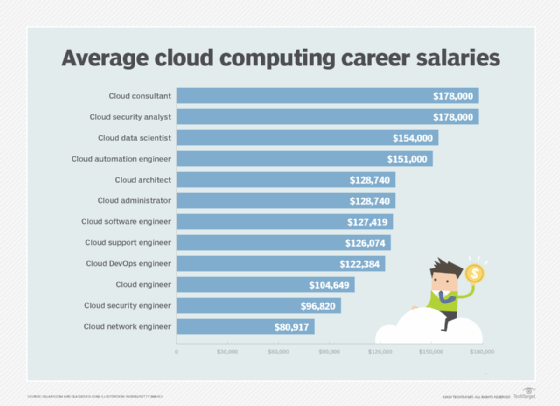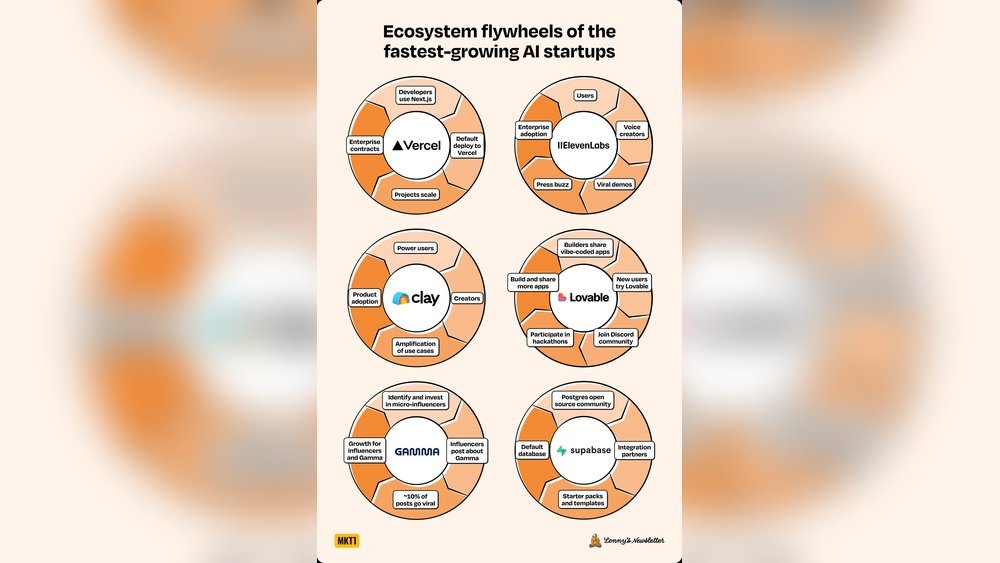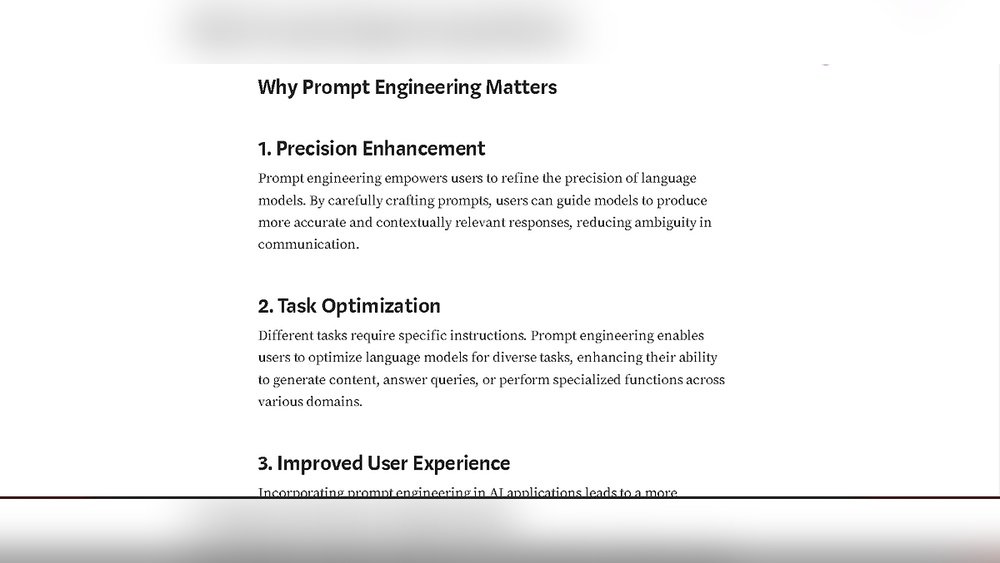Cloud computing is reshaping the job market. Many seek entry level cloud computing jobs.
For beginners, cloud computing offers a world of opportunities. It’s a fast-growing sector with diverse job options. From technical support to data management, there’s something for everyone. The demand for cloud skills is rising, making it a great time to start a career.
Even without extensive experience, you can find roles that match your skills and interests. Companies need fresh talent to manage their cloud solutions. This is your chance to step into a dynamic industry. Explore the possibilities and discover how you can fit into the cloud computing landscape. Dive into a future where technology and innovation lead the way.

Credit: dumpsgate.com
Introduction To Cloud Computing
Welcome to the world of cloud computing, a realm that’s rapidly shaping the future of technology. If you’re new to this field, you’re in for an exciting journey. Cloud computing is a game-changer, offering countless opportunities, especially for those starting their careers. But what exactly does it entail? Let’s dive in and explore.
What Is Cloud Computing?
Cloud computing is like renting a virtual warehouse for your digital needs. Instead of storing data on your own computer, you access it through the internet. Picture this: you need more storage for your photos but don’t want to buy a new hard drive. With cloud services, you can simply add more space online.
Companies use cloud computing to store data, run applications, and even process complex tasks. It’s the backbone of everything from streaming services to online shopping. Have you ever wondered how Netflix manages to stream your favorite shows seamlessly? That’s cloud computing at work.
Importance In Modern Tech
Cloud computing is not just a buzzword; it’s a necessity. In today’s fast-paced world, businesses need flexibility and scalability. Imagine a small startup suddenly gaining popularity. They need more resources instantly. The cloud allows them to scale without buying new equipment.
Moreover, cloud computing boosts innovation. Developers can experiment without worrying about infrastructure costs. This leads to faster development cycles and groundbreaking tech solutions. Have you ever thought about the apps you use daily? Their rapid updates are often thanks to cloud technologies.
Now, consider your own tech journey. Are you ready to embrace cloud computing and the myriad opportunities it offers? Whether you aim to become a cloud architect or a support specialist, the possibilities are endless. What do you think will be your first step in this dynamic field?

Credit: digitalcloud.training
Why Choose A Cloud Career?
Choosing a career in cloud computing can be a smart move today. The digital world relies heavily on cloud technology. This dependence creates numerous job opportunities. Cloud computing careers offer stability and growth. These roles are crucial in modern businesses.
Growing Demand
Cloud services are used by various industries. Companies need skilled professionals to manage these services. The demand for cloud experts is rising every year. Businesses require cloud solutions for data storage and processing. This demand ensures a steady flow of job openings.
Every year, more companies adopt cloud technology. This trend increases the need for entry-level cloud professionals. Skills in cloud computing are valuable and sought after.
Opportunities For Advancement
Starting in cloud computing opens doors to advancement. Entry-level roles can lead to higher positions. With experience, you can become a cloud architect or manager. Cloud careers offer a clear path for growth.
Cloud professionals can expand their skills over time. Learning new technologies helps in moving up the career ladder. This progression is beneficial for long-term career success.
Skills Needed For Entry-level Roles
Embarking on a career in cloud computing as an entry-level professional is an exciting journey filled with opportunities to learn and grow. But what skills do you need to get your foot in the door? This section breaks down the essential skills required for entry level cloud computing jobs, ensuring you stand out in this competitive field.
Technical Skills
Technical skills are the backbone of any cloud computing role. One crucial skill is understanding cloud platforms like AWS, Google Cloud, or Microsoft Azure. Familiarize yourself with their basic services and functionalities.
Grasping programming languages such as Python, Java, or C# is also beneficial. These languages are often used for developing and managing cloud applications.
Knowledge of databases is another key area. You should understand how cloud databases work and how to manage data in the cloud. This will make you a more versatile candidate.
Having these technical skills is essential, but they are just one piece of the puzzle. Cloud computing is a dynamic field that requires more than just technical know-how.
Soft Skills
Soft skills are equally important in cloud computing. Effective communication is crucial. You must be able to explain complex concepts in simple terms.
Problem-solving skills are invaluable. In cloud computing, you’ll often encounter unexpected challenges. Being able to think on your feet is a huge advantage.
Adaptability is another vital soft skill. The tech world is ever-changing, and being open to learning new tools and methods can set you apart.
Have you ever worked on a group project and had to navigate different opinions and ideas? That experience can be a great example of teamwork and collaboration, which are essential in cloud environments.
These soft skills, combined with your technical abilities, create a well-rounded profile that can make you an asset in any entry level cloud computing jobs. Are you ready to develop these skills and jumpstart your cloud career?
Common Entry-level Positions
Cloud computing is a growing field with many job opportunities. Beginners often wonder where to start. Entry-level positions are a great way to enter this industry. These roles offer learning experiences and growth potential. Here are some common entry-level positions in cloud computing.
Cloud Support Specialist
A Cloud Support Specialist assists users with cloud-related issues. They provide technical support and solutions. This role requires strong communication skills and problem-solving abilities. You will handle customer inquiries and troubleshoot problems. Understanding cloud platforms is crucial. Specialists often learn on the job, gaining valuable experience. This position is ideal for tech-savvy individuals who enjoy helping others.
Junior Cloud Developer
A Junior Cloud Developer creates and maintains cloud applications. They work under senior developers to learn coding and design. This role involves writing code and debugging programs. You’ll need a basic understanding of programming languages like Python or Java. Developers often collaborate with teams to improve applications. This position is perfect for those with a passion for coding and innovation. Juniors gain hands-on experience, setting the stage for career advancement.
Certifications To Boost Your Resume
In the fast-evolving world of technology, cloud computing has become a cornerstone of modern business operations. For those entering the field, obtaining the right certifications can significantly boost your resume and set you apart from other candidates. Certifications not only demonstrate your commitment to learning but also validate your skills to potential employers.
Popular Cloud Certifications
Several certifications are recognized globally and can enhance your credibility in the cloud computing industry. The Amazon Web Services (AWS) Certified Solutions Architect is a popular choice for those looking to validate their expertise in designing distributed systems on AWS. This certification focuses on the technical aspects of AWS services, making it ideal if you enjoy problem-solving and design.
Another valuable certification is the Microsoft Certified: Azure Fundamentals, which provides a foundational understanding of cloud services and how they are provided with Microsoft Azure. It’s perfect for those new to cloud computing or transitioning from a different tech field. The Google Associate Cloud Engineer certification is also worth considering, as it covers the essential skills required to deploy applications and monitor operations on Google Cloud Platform (GCP).
How To Get Certified
Getting certified in cloud computing involves a few key steps. Begin by selecting a certification that aligns with your career goals and interests. Once you choose a certification, explore the available study materials and resources. You can find online courses, books, and practice exams tailored to help you prepare effectively.
For many, enrolling in a structured training course can provide the guidance needed to pass the certification exams. These courses often offer hands-on experience, which is crucial for understanding cloud services. Set a study schedule and stick to it. Consistency is key in mastering the topics covered in your chosen certification.
Finally, register for the exam and give it your best shot. Remember, many people don’t pass on their first try, and that’s okay. Use it as a learning experience to identify areas for improvement. Are you ready to take your resume to the next level with a cloud certification?
Building A Strong Cloud Portfolio
Building a strong cloud portfolio is crucial for entry-level cloud computing jobs. It showcases your skills, projects, and knowledge in the cloud computing field. Employers often look for portfolios that demonstrate hands-on experience. A well-crafted portfolio can give you an edge in the competitive job market. Highlighting your best projects and using platforms effectively can set you apart.
Projects To Showcase
Choose projects that highlight your cloud skills. Include projects that show your understanding of cloud services. Demonstrate your ability to solve real-world problems with cloud solutions. Projects could involve deploying applications on AWS, Azure, or Google Cloud. Show your work with containerization using Docker or Kubernetes. Include projects where you optimized cloud costs. These projects make your portfolio stand out.
Using Github Effectively
GitHub is an excellent platform for showcasing your cloud projects. Create repositories for each project. Document your code clearly. Include readme files that explain the project. Use GitHub’s features like branching and issues. Collaborate with others on open-source projects. This shows your ability to work in a team. Keep your GitHub profile updated. It reflects your active involvement in cloud computing.
Networking And Industry Connections
Networking and industry connections are vital for entry level cloud computing jobs. Building relationships in the tech world opens doors to new opportunities. It helps you learn from experienced professionals and stay updated on trends. Connecting with others is essential for career growth in cloud computing.
Joining Cloud Communities
Cloud communities are groups where professionals share insights and resources. Participating in these communities enhances your knowledge and skills. Engage in discussions to learn about real-world challenges and solutions. These interactions provide a deeper understanding of cloud technologies. Online forums and social media groups are excellent starting points. They allow you to connect with like-minded individuals and industry experts.
Attending Tech Meetups
Tech meetups are gatherings for enthusiasts and professionals. Attending meetups gives you exposure to the latest technologies. You can meet people who share your interests and passions. These events often include talks from industry leaders. Listening to experts helps you gain valuable insights into cloud computing. Networking at meetups can lead to job referrals and collaboration opportunities. Engaging with others face-to-face builds strong, lasting connections.
Preparing For Cloud Job Interviews
Securing an entry level cloud computing job starts with a strong interview. Preparation is key to success. Focus on understanding the role and required skills. Practice communication skills to articulate your knowledge clearly. Research common interview questions to boost confidence. Showcase problem-solving abilities to stand out from the crowd.
Common Interview Questions
Familiarize yourself with typical questions. Expect inquiries about cloud services and platforms. Employers often ask about your understanding of AWS, Azure, or Google Cloud. Be ready to discuss cloud security principles. Interviewers may ask about your experience with data storage solutions. Practice answering questions about cloud deployment models. Prepare to explain concepts like SaaS, PaaS, and IaaS. Understand the basics of virtualization and networking.
Demonstrating Problem-solving Skills
Problem-solving skills are crucial in cloud computing roles. Employers value candidates who can think critically. Share examples of past challenges you solved. Describe your process for troubleshooting issues. Explain how you identify the root cause of problems. Highlight your ability to work under pressure. Use specific scenarios to illustrate your skills. Show how you collaborate to find solutions. Emphasize your willingness to learn and adapt.
Future Of Cloud Computing Careers
The future of cloud computing careers looks promising. As technology evolves, cloud computing continues to grow. Entry level jobs in this field are rising in demand. Companies seek skilled individuals to manage their cloud services. Understanding the trends and growth potential can guide your career path.
Emerging Trends
Cloud computing is rapidly changing. New technologies emerge every year. Artificial intelligence is becoming integral to cloud services. Automation tools enhance cloud operations. Security measures are tightening with advanced protocols. These trends shape the future of cloud jobs.
Remote work is gaining popularity. Many companies offer flexible work options. This trend impacts entry level positions. More roles are available for remote workers. Cloud services support this shift effectively. Learning these trends boosts your job prospects.
Long-term Career Growth
Cloud computing offers stable career growth. Entry level positions lead to advanced roles. Experience in cloud services is valuable. It opens doors to senior roles. Continuous learning is essential for growth. Certifications improve your skills and job opportunities.
Companies invest in cloud solutions. Demand for cloud experts increases yearly. This ensures long-term career stability. Upskilling is crucial for advancement. Stay updated with the latest technologies. Long-term growth is achievable with dedication.

Credit: www.techtarget.com
Frequently Asked Questions
What Are The Entry-level Jobs In Cloud Computing?
Entry-level jobs in cloud computing include Cloud Support Associate, Junior Cloud Engineer, Cloud Operations Specialist, and Cloud Developer. These roles focus on cloud infrastructure, troubleshooting, and basic development tasks, providing foundational experience in cloud technologies and services.
How To Get A Job In Cloud Computing With No Experience?
Start with online courses in cloud computing basics. Earn certifications like AWS Certified Cloud Practitioner. Join cloud computing forums and communities. Network with industry professionals on LinkedIn. Apply for internships or entry-level positions to gain hands-on experience.
What Are The Top 3 Entry-level Certifications For Cloud Computing?
The top three entry-level cloud certifications are AWS Certified Cloud Practitioner, Microsoft Certified: Azure Fundamentals, and Google Associate Cloud Engineer. These certifications offer foundational knowledge and skills for cloud services, enhancing career opportunities in the tech industry.
Can A Non-it Person Do Cloud Computing?
Yes, a non-IT person can learn cloud computing. Many platforms offer beginner-friendly courses. Cloud computing basics are accessible and user-friendly. Dedication and practice can help non-IT individuals succeed. Many non-tech professionals transition successfully into cloud roles.
Conclusion
Entry level cloud computing jobs offer a great start. They build valuable skills. Many roles exist, like support and development. Demand for cloud experts grows every day. Companies need fresh talent now. Grasp this chance to enter the tech world.
Learn and grow with each project. These jobs open doors to future opportunities. Cloud computing is the future. Start your journey today. Gain experience and confidence. Ready to dive into tech? Explore the possibilities. Make your mark in cloud computing.
Your career in tech begins here.







One response to “Entry Level Cloud Computing Jobs: Kickstart Your Tech Career”
[…] May 28, 2025 […]